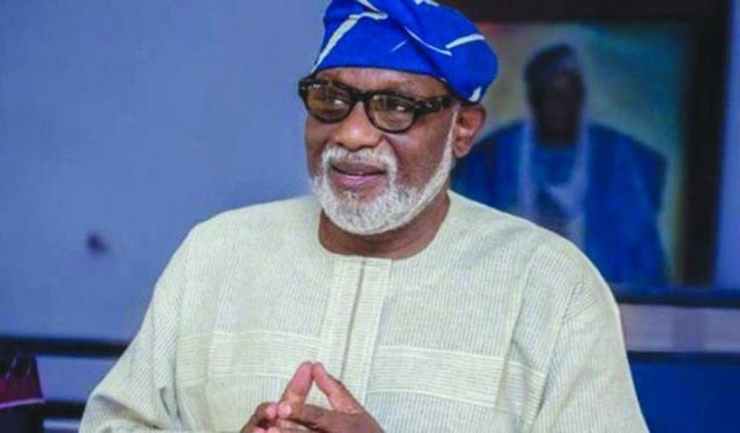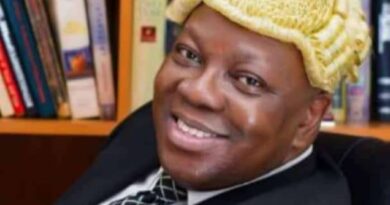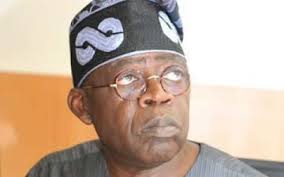Akeredolu: How Supreme Court verdict reopened old wounds
Beyond the legal jigsaw surrounding the recent judgment of the Supreme Court on the October 2020 governorship election in Ondo State are inherent permutations relating to the politics of the 2023 elections in the country, writes TAIWO AMODU.
The July 28, 2021 judgement of the Supreme Court on the Appeal filed by the governorship candidate of the Peoples Democratic Party (PDP) in last October Governorship election in Ondo State, Eyitayo Jegede (SAN) challenging the mandate of the sitting governor and All Progressives Congress, (APC) candidate in that election, Rotimi Akeredolu, has rekindled the deep-seated animosity in the ruling party.
Contrary to the claim by the APC Caretaker/Extraordinary Convention Planning Committee, (CECPC) led by Yobe State governor, Mallam Mai Mala Buni that his reconciliation efforts have paid off, the chain of reactions to the minority judgment has exposed the prevalent situation in the fractured platform: peace of the grave yard.
Investigation revealed that egede, in his petition, had challenged the eligibility of Governor Akeredolu (SAN) on the ground that his nomination letter was signed by his counterpart from Yobe State, Mai Mala Buni, who incidentally is the Chairman, CECPC set up at an emergency National Executive Committee (NEC) of the party in 2020r, sequel to its dissolution of the National Working Committee (NWC) led by Comrade Adams Oshiomhole.
Jegede had argued that Buni, according to section 183 of the 1999 Constitution and Article 17(4) of the APC, could not function both as governor and acting chairman of the APC concurrently. His prayer was hinged on the fact that the acting national chairman of the APC and Yobe governor, Mala Buni, was the one, who forwarded Akeredolu’s name to the Independent National Electoral Commission (INEC) as candidate of the APC. The PDP candidate submitted that Akeredolu’s nomination breached the law and as such, his election should be nullified. Article 17(4) of the APC 2014 Constitution (as amended) read in part: “No officer in any organ of the Party shall hold Executive position office in government concurrently.” Section 183 of the 1999 Constitution states that «The Governor, shall not, during the period he holds office, holds any other executive office or paid employment in any capacity whatsoever.»
Justices Mary Peter-Odili, Justices Ejembi Eko and Ibrahim Saulawa, in their minority judgments, declared that Akeredolu’s election should have been nullified, while the appellants, (PDP and Jegede) declared winner of the poll. Justice Eko, further maintained that Buni violated the constitution, when as a sitting governor, still acted as chairman of the APC by submitting Akeredolu’s name to INEC for purposes of the governorship poll.
APC tendencies
To the consternation of the ordinary APC faithful, what took the central stage at the party national secretariat was not the excitement that its governor in South west state of Ondo survived by the whiskers, but varied interpretation of the judgment by some of its chieftains. The APC chieftains took positions, giving conflicting interpretations of the judgment, depending on the power blocks they belong in the amorphous platform. First to hit the media space was the Minister of State, Labour, Festus Keyamo,(SAN). In a private memo to the party stakeholders, which was leaked, Keyamo called for a halt to the ward congresses held last Saturday, while he equally demanded that machinery be set in motion to see to the exit of the Buni-led CECPC from the APC national secretariat.
Two presidential aides: Senators Babafemi Ojudu and Ita Enang, Special Adviser to the President on Political Matters, and Senior Special Assistant to the President on Niger Delta Affairs, respectively asked stakeholders in the party to shut the gate of the party national secretariat against Buni and his team. The duo argued that the minority judgment should not be disregarded as they claimed it had far-reaching implications on the APC in the face of forthcoming governorship elections in Anambra and other off season polls.
Immediate past Legal Adviser of the party, Babatunde Ogala (SAN) spoke in similar vein. Ogala, a confidant of an estranged leader of the APC, Bola Tinubu, went further to propose the dissolution of the Buni-led CECPC and reinstatement of the axed Comrade Oshiomhole-led NWC. He said; «The bigger issue is the fact that the entire caretaker committee structure is unconstitutional as it runs counter to the spirit of Section 223 of the 1999 Constitution which mandates political parties to have only democratically-elected leadership. Therefore, without a doubt, APC must use this opportunity to correct all mistakes by going back to that dissolution of its National Working Committee and all democratically built structures and re-instate the democratically elected NWC members, and other structures of the party.”
Minority judgment
Two chieftains of the party, however, disagreed with the submissions of Keyamo and Buhari’s Presidential aides. Chief Adeniyi Akintola (SAN). who incidentally was one of the lead counsel for Governor Akeredolu in the election petition decided in his favour by the Supreme Court, faulted the position canvassed by Keyamo, Babafemi Ojudu and others He told newsmen that no court in the land would attach value to minority judgements as he noted that it was of no value. He maintained that by the pronouncements of the Election Petition Tribunal and the Court of Appeal which was affirmed by the apex court, Governor Buni could combine both party and elective positions.
Deputy president of the Senate and leader of the APC in the South-South region, Ovie Omo-Agege aligned with the submission of Chief Akintola. In a statement he personally signed, the senator representing Delta Central, argued that the “majority decision of the Supreme Court in Jegede’s case, emphatically dismissed the appeal and did not consider the issue of the provisions of Section 183 of the 1999 Constitution, neither did the majority decision make any comments on the competence of Governor Mai Mala Bumi as the Chairman of the APC Caretaker Committee. The appeal was dismissed on the ground of competence or lack thereof for the non-joinder of a necessary party to the suit at the lower court.» Omo-agege further argued that Buni›s eligibility to hold party and elective positions concurrently was not in breach of the provisions of Article 17(4) of the APC 2014 Constitution (as amended) and section 183 of the 1999 Constitution. “In view of the foregoing constitutional provisions, the question becomes: Is the appointment of a Governor to Chair a Caretaker Committee of his political party, same not being an ‘Executive Office’ in respect of which he is to be paid remuneration, incompetent? Can it be said that a State Governor who is the Chairman of the Governors Forum of Nigeria is occupying an “Executive office”? Can it also be argued that the President cannot be appointed as the Chairman of Africa Union?
“From the explicit provision of Section 183 of the Constitution of the Federal Republic of Nigeria, 1999 (as amended), it is absolutely impossible and untenable to argue that the provisions of Section 183 bars a Governor from being a Chairman or member of a Caretaker Committee set up by his or her political party. More so, the position of the Chairman of a Caretaker Committee cannot by any sense of imagination, logic or simple common sense be classified as a being a salaried Executive office.”
2023 tendencies
Further investigations revealed that what is probably at stake is not points of law but mere pontifications, laced with vested interest but paraded as jurisprudence. A party source cited the position taken by the immediate past national legal adviser of the party, Tunde Ogala, (SAN), who called for reinstatement of the dissolved NWC led by Comrade Oshiomhole. He said: “Both Ogala and Oshiomhole belonged to the defunct ACN block in the APC. He was in the dissolved NWC with Oshiomhole. How on earth will someone suggest that the dissolved executive that was thrown out by the NEC last year based on a legal debacle arising from Oshiomhole removal by a judgment of a Court of Appeal be brought back? He knows he will be a beneficiary since he served as national legal adviser in that NWC.” The source further alleged that both Ojudu and Keyamo are deliberately hostile towards the APC interim leadership since the Caretaker is perceived as being indifferent to the protests against the grip of Governor Fayemi and Senator Ovie Omo Agege in Ekiti and Delta states, respectively.
Malami’s position
While the anti-Buni flank in the APC relies on the provisions of Article 17(4) of the APC Constitution (October 2014 as amended), they are believed to deliberately gloss over provisions of Article 18 which vests a statutory organ of the party, the NEC the power to create a standing ad-hoc Committee. The section reads in part: The National Executive Committee shall have power to set up Standing Committee (s) and, where necessary, Ad-hoc Committees.” The source claimed the Attorney General of the Federation and Minister of Justice, Abubakar Malami, SAN relied on this provision in his confidential memo, where he argued that Buni-led CECPC has neither breached Article 17 (4) nor violated provisions of Section 183 of the 1999 Constitution and should therefore, proceed with conduct of last Saturday’s ward congress and other subsequent congresses that would culminate in the conduct of a national convention.
His memo, dated July 29, 2021 and addressed to the Kebbi State governor and chairman of the APC Governors Forum, Abubakar Atiku Bagudu, read in part: “It remains to be seen how a governor functioning in an ad-hoc capacity as mandated/delegated by his political party can be construed as ‘’holding any executive office or paid employment’’ as envisaged by the drafters of our constitution.
“To further show the meritless nature of the position under review, assuming without conceding that the argument is right, then, it will equally be contrary to the spirit and intent of Section 183 of the Constitution for any sitting Governor to be Chairman of say the Governors’ Forum, Chairman of the Progressive Governors Forum, or any other similar body. This, in my humble view can definitely not be the intention of the drafters of the 1999 Constitution.”
Malami further maintained that no petition against the Buni team would be sustained in any court of law. “The appointment of Governor Mala Buni in the circumstances is not irregular and the possibility of any member of the Party to be so appointed is in compliance with the APC Constitution which empowers the National Executive Committee (NEC) of the Party to appoint any Member into any Committee, give such Committee any name and empower it as the NEC may deem fit.
“The foregoing said, needless to state that the determination of the propriety or otherwise of His Excellency, Mai Mala Buni to function as chairman of the party’s CECPC in his capacity as a Member of the Party and Executive Governor of Yobe State, or whether such dual-responsibility amounts to occupying an executive position or paid employment as envisaged under Section 183 of the 1999 Constitution (as amended) is a matter which will have to be specifically submitted to the Court, for proper adjudication before a firm position of the Law can be arrived at in respect thereof.
“However, it remains to be seen how the Court will hold that an ad-hoc caretaker committee chairman exercising the powers of, and subject to the supervision and control of NEC and the Convention of his Party, is occupying an executive position.
‘The Supreme Court has not determined the import of Section 183 of the Constitution as it affects H.E., Buni (in the instant peculiar circumstances) vis-a-vis the APC. Thus, any speculative insinuation that any future Suit against the Party or its activities, where H.E, Buni is joined as a party will automatically be lost by or be against the Party is without any known basis in Law. Such outlandish position, to say the least, is both unjustifiable and unfounded in Law.
“In the premise of the foregoing, it is important to note as follows that:
“The Supreme Court did not consider nor determine the justice of Section 183 of the 1999 Constitution vis-à-vis the peculiar case of the position of H.E, Mai Mala Buni as the Chairman of our Party’s CECPC.
“As the Supreme Court did not make any definite declaration or proclamation on Section 183 of the 1999 Constitution vis-à-vis the position of H.E, Mai Mala Buni as the Chairman of our Party’s CECPC, any speculative interpretations of the instant Supreme Court Judgment go to no issue and should be discountenanced.
“If the issue is submitted to the Court for determination, same will be determined based on a proper construction of the relevant facts and review of evidence.”
Who dares presidency?
A member of the CECPC, who incidentally is the chairman of the APC Constitution Review Committee, Professor Mamman Tahir, said on Friday at a news conference that anyone willing to challenge the eligibility of the interim leadership was free to initiate legal action. Tahir stated that the Buni leadership sought the legal advice of the AGF who convinced them that they were on firm ground.
It remains to be seen who will bell the cat as the national secretary of the party, Senator John James Akpanudoedehe has warned against court action. The former minister of state, Federal Capital Territory (FCT) in a statement he personally signed asked aggrieved chieftains to explore the party internal mechanisms on conflict resolutions rather than recourse to court action. He gave a hint of suspension and expulsion of anyone who ignores the CECPC admonition.




